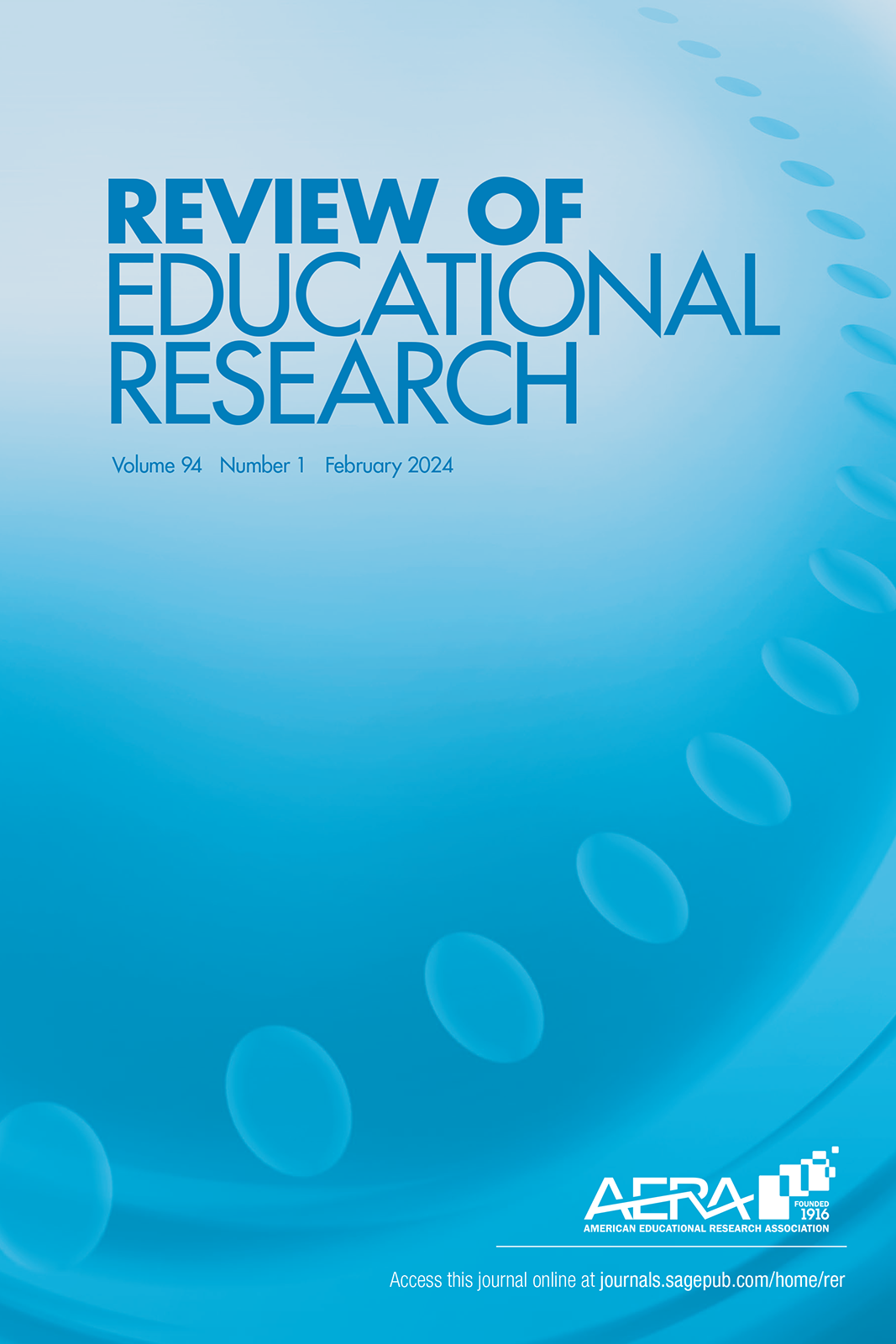学生对学校权利的认知——国际文学的系统考察
IF 7.4
1区 教育学
Q1 EDUCATION & EDUCATIONAL RESEARCH
引用次数: 9
摘要
这篇综述的重点是中小学学生对自己权利的看法。权利意识的概念框架被应用于理解学生的知识、经历和情绪如何塑造他们的权利观念。该分析基于在不同国家进行的38项实证研究。研究结果将学生的权利观念描述为直观的——也就是说,这些观念不是基于法律规则,而是基于学生的个人见解。研究结果还确定了影响学生认知的关键因素:学校背景、国家背景和学生的个人特征。结论强调,学校基于权利的实践、学生群体和学校工作人员的多样性以及学校关系影响学生的权利意识。然而,学生的认知如何受到文化曲目、宗教、社会经济地位、性别和年龄的影响仍然存在问题。其含义是,未来的研究应采用基于背景的议程,为人权教育方案和基于权利的组织实践的设计和实施提供信息。本文章由计算机程序翻译,如有差异,请以英文原文为准。
Students’ Perceptions of Their Rights in School: A Systematic Review of the International Literature
This review focuses on students’ perceptions of their rights in elementary and secondary schools. The conceptual framework of rights consciousness was applied to understand how students’ knowledge, experiences, and emotions shape their rights perceptions. The analysis is based on 38 empirical studies conducted in different countries. The findings characterize students’ rights perceptions as intuitive—that is, perceptions that are not grounded in legal rules but in students’ personal insights. The findings also identify key factors affecting students’ perceptions: school context, national context, and students’ individual characteristics. The conclusions underscore that school rights-based practices, student body and school staff diversity, and school relationships influence students’ rights consciousness. However, questions remain concerning how students’ perceptions are affected by cultural repertoires, religion, socioeconomic status, gender, and age. The implications are that future studies should apply a context-based agenda to inform the design and implementation of human rights education programs and rights-based organizational practices.
求助全文
通过发布文献求助,成功后即可免费获取论文全文。
去求助
来源期刊

Review of Educational Research
EDUCATION & EDUCATIONAL RESEARCH-
CiteScore
24.10
自引率
2.70%
发文量
28
期刊介绍:
The Review of Educational Research (RER), a quarterly publication initiated in 1931 with approximately 640 pages per volume year, is dedicated to presenting critical, integrative reviews of research literature relevant to education. These reviews encompass conceptualizations, interpretations, and syntheses of scholarly work across fields broadly pertinent to education and educational research. Welcoming submissions from any discipline, RER encourages research reviews in psychology, sociology, history, philosophy, political science, economics, computer science, statistics, anthropology, and biology, provided the review addresses educational issues. While original empirical research is not published independently, RER incorporates it within broader integrative reviews. The journal may occasionally feature solicited, rigorously refereed analytic reviews of special topics, especially from disciplines underrepresented in educational research.
 求助内容:
求助内容: 应助结果提醒方式:
应助结果提醒方式:


